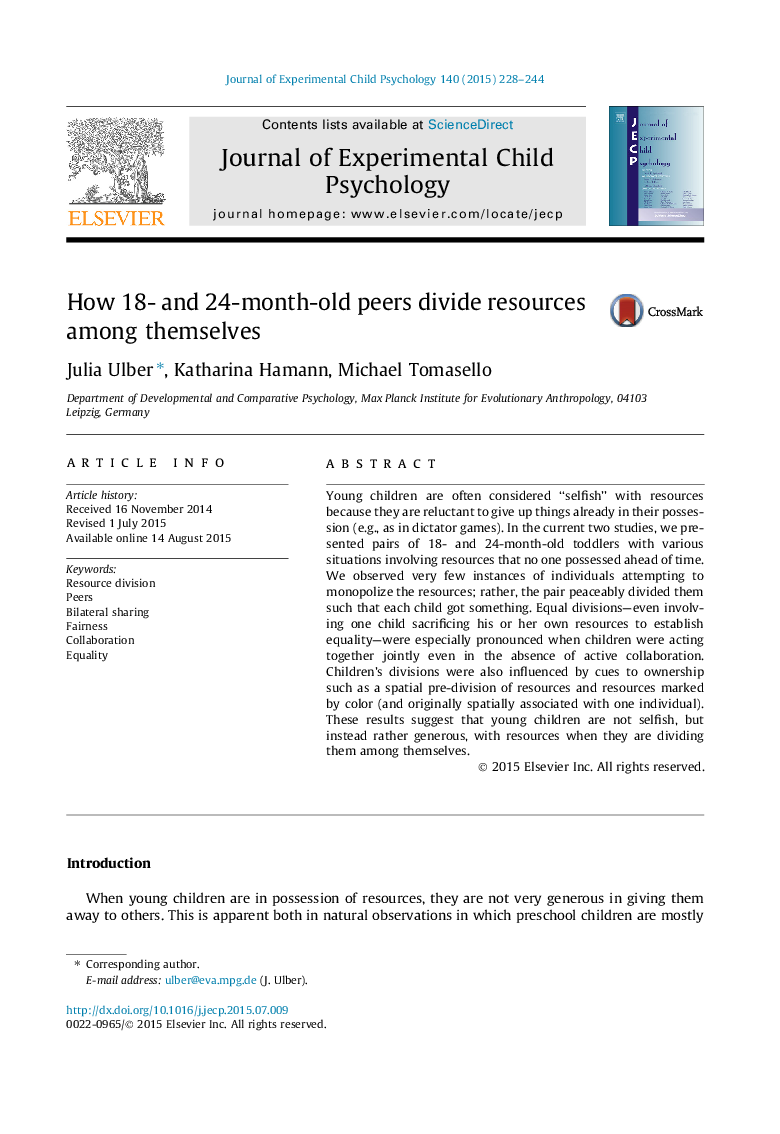| Article ID | Journal | Published Year | Pages | File Type |
|---|---|---|---|---|
| 917890 | Journal of Experimental Child Psychology | 2015 | 17 Pages |
•We investigated bilateral resource divisions in 18- to 24-months-old children.•Peers divided resources in a tolerant and peaceable manner, quite often equally.•Divisions were more generous if the resources were obtained in a joint situation.•Cues of possession reduced children’s egalitarian tendencies.
Young children are often considered “selfish” with resources because they are reluctant to give up things already in their possession (e.g., as in dictator games). In the current two studies, we presented pairs of 18- and 24-month-old toddlers with various situations involving resources that no one possessed ahead of time. We observed very few instances of individuals attempting to monopolize the resources; rather, the pair peaceably divided them such that each child got something. Equal divisions—even involving one child sacrificing his or her own resources to establish equality—were especially pronounced when children were acting together jointly even in the absence of active collaboration. Children’s divisions were also influenced by cues to ownership such as a spatial pre-division of resources and resources marked by color (and originally spatially associated with one individual). These results suggest that young children are not selfish, but instead rather generous, with resources when they are dividing them among themselves.
